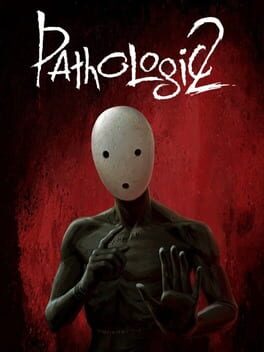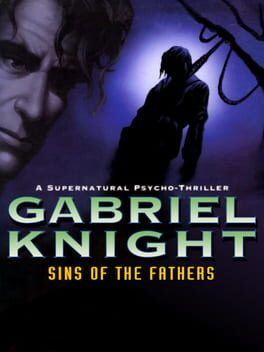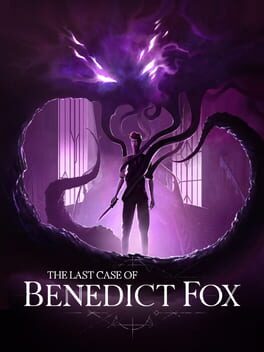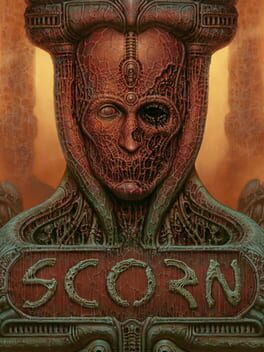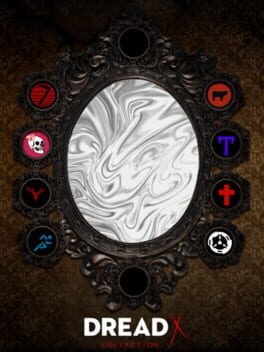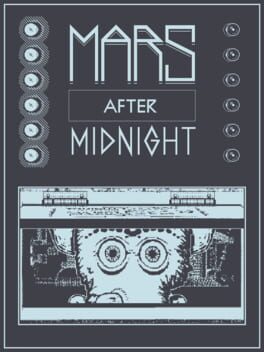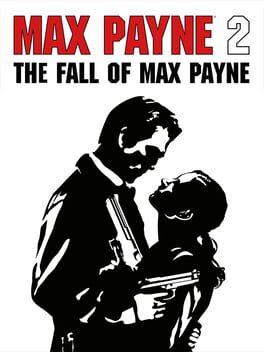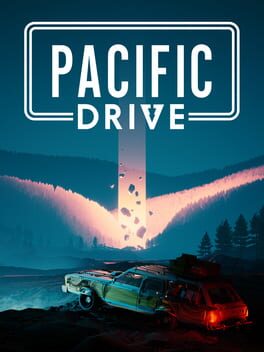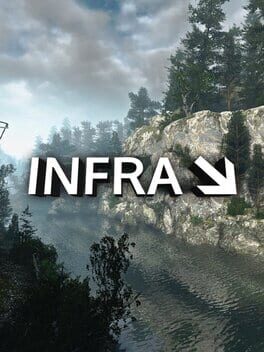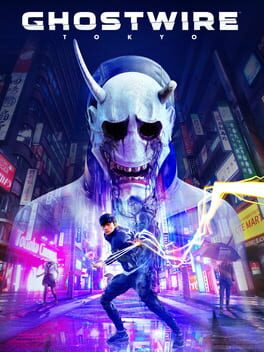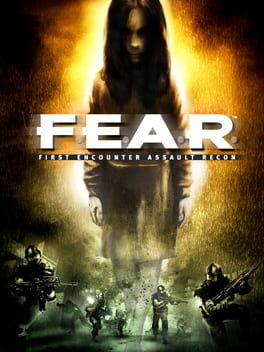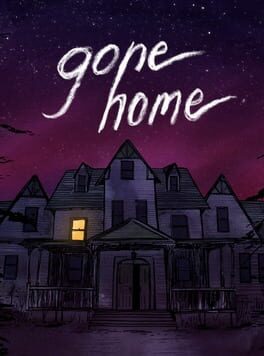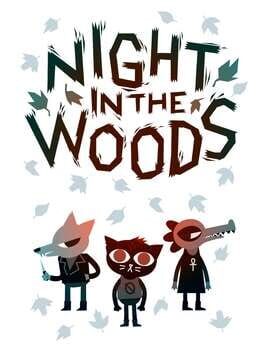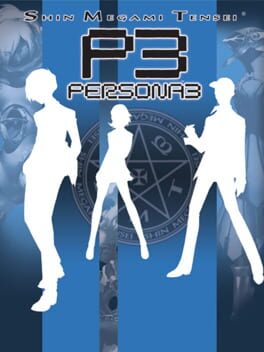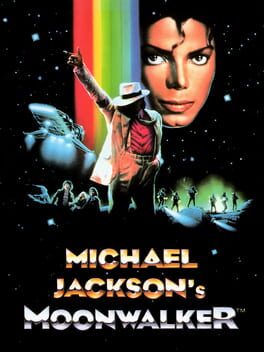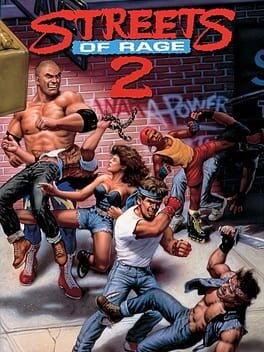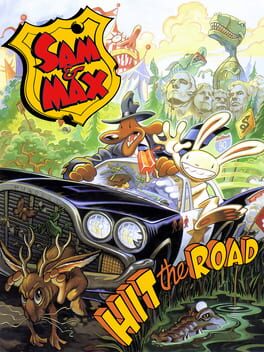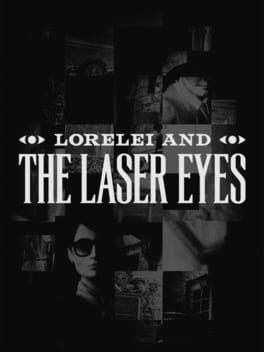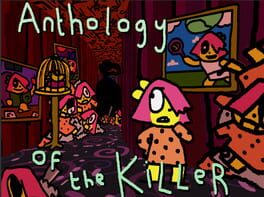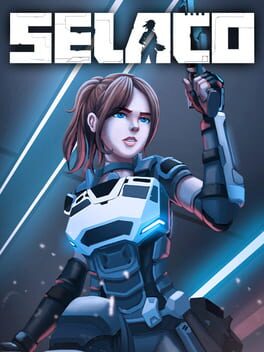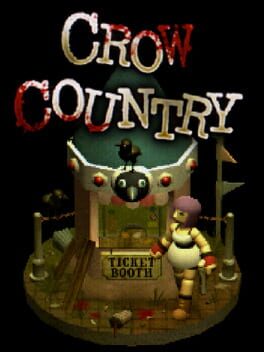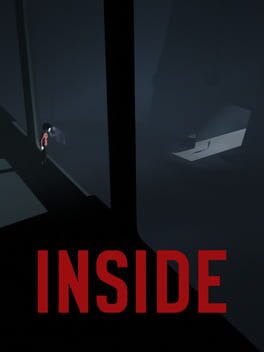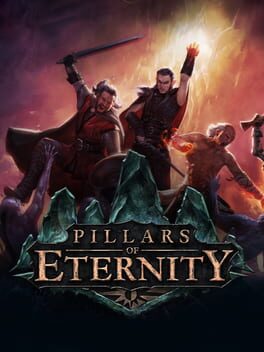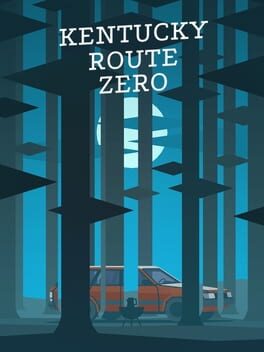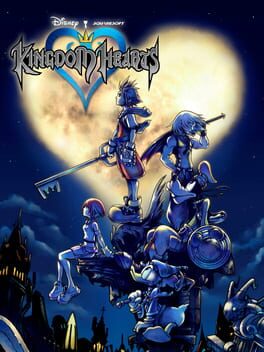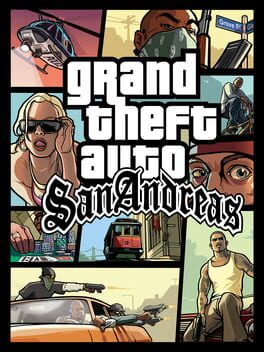34 reviews liked by wilx
Pathologic 2
2019
Disempowerment is nothing new in videogames. Over the decades, many have dabbled in the art of taking stuff away from the player, usually as narrative device that reflects through interactivity the lowest point of a character's story arc or as a tool to instill a sense of tangible dread as you no longer have access to familiar mechanics that would otherwise quickly solve the issue, but rarely do those moments ever extend past their unwelcoming phase into frustrating territory before quickly bursting into power fantasy catharsis. Some games in recent years have managed to do so to great effect, like Rain World or Death Stranding, but none to my knowledge have achieved the apex that Pathologic has on that particular stage.
Much can be argued in favor of the original Pathologic's outright repulsiveness, inherent to its ugly look, unintuitive UI and disruptive euro jank, that would inevitably compound over what was already an antagonistic game filled with mechanics solely devised to hurt you, but I believe the greatest achievement of its reimagining, Pathologic 2, is in its ability to eliminate that pretense of subjectively interpreting what could easily be attributed to financial and time constraints and instead being a much more inviting play, shining the spotlight solely on the geniously crafted and designed tragedy that unfolds before and around you at the center of it all. This time around, you will not be able to blame the game.
How does it feel to not be the hero of your own story? Surely we have all experienced this idea in some shape or form with storytelling in media, and in some ways we live it everyday in our daily lives, but have you truly ever been put on the act of such conundrum? Videogames pride themselves in allowing a level of choice and emergent storytelling not possible in different mediums, but hardly do we ever realize how truly shackling freedom can be when explored to its fullest, as games have conditioned us to believe there is always a more righteous and intended path if you manage play "better". It isn't until you are crawling through the night streets of Pathologic 2 frightfully murdering people in despair for their possessions, ignoring the call to adventure and letting important events die out because there are more pressing personal matters at hand like not starving to death, that you realize how ridiculous the conceit of videogames are.
The brilliance of Pathologic 2, beyond its imaginative world and intrigue filled story and manipulative cast of characters, lies in the way it predicates the survival of its town with the player's own, creating a much more engrossing and transcendent narrative inbetween the dialogue filled NPC interactions, where you are making deeply and engaging life affecting existential choices such as deciding if you continue to walk slowly to a destination that will consume your ever dwindling limited time, or if you risk running to it and filling your thirst and exhaustion meters with no hope of depleting them. That constant tug and pull in turn ends up informing your decisions and outlook of Pathologic 2, has you quickly learn that no, you cannot save everyone, and how could you, when you have yourself to worry about?
Pathologic 2 consistently reminds you of its nature as a videogame, mocking you at any chance it gets and correctly predicting how you will be deceived next in an attempt to dissuade you. And yet that constant 4th wall breaking only ends up having the inverse effect of drawing you further into its world. You want to win against the machine, you have played this game many times before. And it will continue to break you down until you play by its rules, to the point of even taking away from you the relief of death. Settling into a path of choices you can feel confident about is an utopic wish that videogames have exploited for most of its existence, and Pathologic 2 being able deform that expectation, gamefying it into a tough provoking exercise that puts you in the front row seat of a misery drama, presenting the human condition by the mere act of forcing you to sell a gun to buy a loaf of bread, is some real shit that you will never experience in any other piece of work.
With two campaigns short of being complete, Pathologic 2 is already a masterpiece of game design, a true testament to the possibilities of the artform and how much higher they can aspire to. Transcending beyond its russian heritage, it demonstrates the hardships of the individual vs. the world, and like a great novel, the more you look into it, the more it unravels and reveals about itself and yourself. You will always feel like you have missed some crucial aspect about it, and that you could have done things differently to better solve it. And that's the point.
Much can be argued in favor of the original Pathologic's outright repulsiveness, inherent to its ugly look, unintuitive UI and disruptive euro jank, that would inevitably compound over what was already an antagonistic game filled with mechanics solely devised to hurt you, but I believe the greatest achievement of its reimagining, Pathologic 2, is in its ability to eliminate that pretense of subjectively interpreting what could easily be attributed to financial and time constraints and instead being a much more inviting play, shining the spotlight solely on the geniously crafted and designed tragedy that unfolds before and around you at the center of it all. This time around, you will not be able to blame the game.
How does it feel to not be the hero of your own story? Surely we have all experienced this idea in some shape or form with storytelling in media, and in some ways we live it everyday in our daily lives, but have you truly ever been put on the act of such conundrum? Videogames pride themselves in allowing a level of choice and emergent storytelling not possible in different mediums, but hardly do we ever realize how truly shackling freedom can be when explored to its fullest, as games have conditioned us to believe there is always a more righteous and intended path if you manage play "better". It isn't until you are crawling through the night streets of Pathologic 2 frightfully murdering people in despair for their possessions, ignoring the call to adventure and letting important events die out because there are more pressing personal matters at hand like not starving to death, that you realize how ridiculous the conceit of videogames are.
The brilliance of Pathologic 2, beyond its imaginative world and intrigue filled story and manipulative cast of characters, lies in the way it predicates the survival of its town with the player's own, creating a much more engrossing and transcendent narrative inbetween the dialogue filled NPC interactions, where you are making deeply and engaging life affecting existential choices such as deciding if you continue to walk slowly to a destination that will consume your ever dwindling limited time, or if you risk running to it and filling your thirst and exhaustion meters with no hope of depleting them. That constant tug and pull in turn ends up informing your decisions and outlook of Pathologic 2, has you quickly learn that no, you cannot save everyone, and how could you, when you have yourself to worry about?
Pathologic 2 consistently reminds you of its nature as a videogame, mocking you at any chance it gets and correctly predicting how you will be deceived next in an attempt to dissuade you. And yet that constant 4th wall breaking only ends up having the inverse effect of drawing you further into its world. You want to win against the machine, you have played this game many times before. And it will continue to break you down until you play by its rules, to the point of even taking away from you the relief of death. Settling into a path of choices you can feel confident about is an utopic wish that videogames have exploited for most of its existence, and Pathologic 2 being able deform that expectation, gamefying it into a tough provoking exercise that puts you in the front row seat of a misery drama, presenting the human condition by the mere act of forcing you to sell a gun to buy a loaf of bread, is some real shit that you will never experience in any other piece of work.
With two campaigns short of being complete, Pathologic 2 is already a masterpiece of game design, a true testament to the possibilities of the artform and how much higher they can aspire to. Transcending beyond its russian heritage, it demonstrates the hardships of the individual vs. the world, and like a great novel, the more you look into it, the more it unravels and reveals about itself and yourself. You will always feel like you have missed some crucial aspect about it, and that you could have done things differently to better solve it. And that's the point.
Of the two point n click adventure games I’ve played this year that concern themselves largely with underground voodoo culture in turn of the century New Orleans, Gabriel Knight is definitely the better experience than Nancy Drew: Legend of the Crystal Skull, but I’m still left wondering if anybody will ever tackle this subject matter in a way that’s not blisteringly racist.
Sins of the Fathers was Designed and written by Jane Jensen, famous among people who care about shit like this mostly for a relatively small but extremely prolific career as an adventure game designer. She’s known for her interest in real life histories and cultures that she uses to inform her stories and for the meticulous research she puts into them, which always makes it into the games – usually in the form of extremely clumsy but by the same token mildly charming gigantic info dumps every couple of hours. This is true in Sins of the Fathers, too, a game that’s very obviously trying to teach people about the rich history of real life voodoo culture and dispel a lot of the popular tropes universal to media portrayals of it, but the success is…mixed, to be generous.
Because, yeah, it’s clear that Jensen did her research, and there IS a lot of cool stuff in the game, and especially early on, the game goes out of its way a lot to separate the silliness of the cartoonish “voodoo killings” of the premise from anything that resembles real life practice, and to demonstrate that the characters know this is a dumb thing to think too. The big obvious problem, though, is that you are playing a supernatural horror game, so no matter how much we hang a lampshade on this stuff, by the end of the game we’re still pretty much checking all the boxes and engaging earnestly with all the same stuff we were proverbially wagging our fingers at a few hours ago. Knowing you’re doing it doesn’t forgive you for doing it later, it kind of just makes you look stupid for not coming up with a different ending!
Additionally, the way characters are written and sources are cited definitely gives an air of…late 20th century academia to the whole thing that makes all of the Bibliographic Authenticity of the game ring pretty hollow, especially in 2021. When your sources are texts pulled from museums and dusty white men giving you judgements and interpretations dressed as objective facts, you’ve gotta take things with a grain of salt and I don’t think that’s a level Jensen was operating on when she was writing this game in 1992, based on the final product.
It leaves the game in an interesting middle ground. Sins of the Fathers is obviously not aspiring to be much more than a moody, pulp mystery adventure - an Indiana Jones for the r-rated fantasy crowd – but Jensen’s interests as a creator mark it with this air of sophistication, almost like an educational game for adults, a vibe it can use for its own legitimacy as a piece of media worth taking more seriously than maybe it deserves or it wants. So on one hand you have this air of legitimacy from questionable sources but on the other hand you’ve still got a story written by white people that hinges around a white guy in 1800 romancing a woman who is a slave and presenting that story only from his perspective and completely uncritically and you are fully expected to just take his word for it and assume it’s true and not consider the power dynamics or other implications, and then also think it’s a bad thing when that woman’s spirit goes on to start slave rebellions after she dies. It all leaves a strange taste in one’s mouth!
Which is not to say I dislike the game! On the contrary, I had an absolute blast, and it’s quite obvious that pretty much everybody who worked on it did too. Jensen and Bridget McKenna’s script is brimming with verve, and a wry humor complimented perfectly by the completely goofy performances coming in from a cast absolutely studded with c-list stars from the 90s. The puzzles are some of the most balanced I’ve ever played from the era, especially surprising given the pedigree of a lot of the people on this team and Sierra’s reputation in general. Music and graphics are out of this world good. As a mood piece it’s unassailable. There are some of the best animations in the genre in this game, from the intensity of the strangulation in key game over sequences to the joyous strut of the asshole mime in the park, every moment of the game is bursting with the exact right amount of personality.
It’s also commendably scary, something that I always really appreciate in this genre. There’s a very slow mount to the tension as you uncover the extent of conspiracy at the heart of this game, and as the days tick by the noose starts to very tangibly tighten around Gabriel’s neck, faster and more confidently than I was expecting. When on the morning of the fourth day there’s just a guy suddenly standing outside your store window, staring in, not moving and not reacting to you, it’s intimidating. When you realize the buskers around town are all in on the evil plot together and use their music to send coded messages across the city, it’s chilling. When the cop you’ve been chatting with every day suddenly tells you that they’ve never had a guy named Mosely on the force when you’re Mosely’s best friend and you were in his office yesterday, it’s openly frightening. They can get away with doing things so overtly in front of Gabriel because they are powerful, actually powerful, and Gabriel is a little piece of shit, and he can’t do a thing to touch them officially. It truly doesn’t matter to them. And that’s scary. It’s really well done.
That kind of craft is all over the game. Gabriel himself threads the needle of being a genuinely despicable asshole, perhaps one of the best in video games, without being completely unlikable or worthy of hate. His supporting cast is uniformly winning, and the only person who really gets short shrift is his love interest (making your guys fated to fall in love does not make their love being shallow more satisfying).
So Sins of the Fathers is TRULY, the DEFINITION of a problematic fave. Cannot understate how fucked up the politics of it are, how intensely and virulently racist it is, even as it’s questionably trying to subvert racist tropes and clearly thinks its heart is in the right place. But if you can stomach it, what else is here is completely compelling. If nothing else you get to listen to Tim Curry do the worst cajun accent of all time for like ten hours and he pronounces words super fucked up in like four different languages. That, at the very least, absolutely rips with no caveats.
Sins of the Fathers was Designed and written by Jane Jensen, famous among people who care about shit like this mostly for a relatively small but extremely prolific career as an adventure game designer. She’s known for her interest in real life histories and cultures that she uses to inform her stories and for the meticulous research she puts into them, which always makes it into the games – usually in the form of extremely clumsy but by the same token mildly charming gigantic info dumps every couple of hours. This is true in Sins of the Fathers, too, a game that’s very obviously trying to teach people about the rich history of real life voodoo culture and dispel a lot of the popular tropes universal to media portrayals of it, but the success is…mixed, to be generous.
Because, yeah, it’s clear that Jensen did her research, and there IS a lot of cool stuff in the game, and especially early on, the game goes out of its way a lot to separate the silliness of the cartoonish “voodoo killings” of the premise from anything that resembles real life practice, and to demonstrate that the characters know this is a dumb thing to think too. The big obvious problem, though, is that you are playing a supernatural horror game, so no matter how much we hang a lampshade on this stuff, by the end of the game we’re still pretty much checking all the boxes and engaging earnestly with all the same stuff we were proverbially wagging our fingers at a few hours ago. Knowing you’re doing it doesn’t forgive you for doing it later, it kind of just makes you look stupid for not coming up with a different ending!
Additionally, the way characters are written and sources are cited definitely gives an air of…late 20th century academia to the whole thing that makes all of the Bibliographic Authenticity of the game ring pretty hollow, especially in 2021. When your sources are texts pulled from museums and dusty white men giving you judgements and interpretations dressed as objective facts, you’ve gotta take things with a grain of salt and I don’t think that’s a level Jensen was operating on when she was writing this game in 1992, based on the final product.
It leaves the game in an interesting middle ground. Sins of the Fathers is obviously not aspiring to be much more than a moody, pulp mystery adventure - an Indiana Jones for the r-rated fantasy crowd – but Jensen’s interests as a creator mark it with this air of sophistication, almost like an educational game for adults, a vibe it can use for its own legitimacy as a piece of media worth taking more seriously than maybe it deserves or it wants. So on one hand you have this air of legitimacy from questionable sources but on the other hand you’ve still got a story written by white people that hinges around a white guy in 1800 romancing a woman who is a slave and presenting that story only from his perspective and completely uncritically and you are fully expected to just take his word for it and assume it’s true and not consider the power dynamics or other implications, and then also think it’s a bad thing when that woman’s spirit goes on to start slave rebellions after she dies. It all leaves a strange taste in one’s mouth!
Which is not to say I dislike the game! On the contrary, I had an absolute blast, and it’s quite obvious that pretty much everybody who worked on it did too. Jensen and Bridget McKenna’s script is brimming with verve, and a wry humor complimented perfectly by the completely goofy performances coming in from a cast absolutely studded with c-list stars from the 90s. The puzzles are some of the most balanced I’ve ever played from the era, especially surprising given the pedigree of a lot of the people on this team and Sierra’s reputation in general. Music and graphics are out of this world good. As a mood piece it’s unassailable. There are some of the best animations in the genre in this game, from the intensity of the strangulation in key game over sequences to the joyous strut of the asshole mime in the park, every moment of the game is bursting with the exact right amount of personality.
It’s also commendably scary, something that I always really appreciate in this genre. There’s a very slow mount to the tension as you uncover the extent of conspiracy at the heart of this game, and as the days tick by the noose starts to very tangibly tighten around Gabriel’s neck, faster and more confidently than I was expecting. When on the morning of the fourth day there’s just a guy suddenly standing outside your store window, staring in, not moving and not reacting to you, it’s intimidating. When you realize the buskers around town are all in on the evil plot together and use their music to send coded messages across the city, it’s chilling. When the cop you’ve been chatting with every day suddenly tells you that they’ve never had a guy named Mosely on the force when you’re Mosely’s best friend and you were in his office yesterday, it’s openly frightening. They can get away with doing things so overtly in front of Gabriel because they are powerful, actually powerful, and Gabriel is a little piece of shit, and he can’t do a thing to touch them officially. It truly doesn’t matter to them. And that’s scary. It’s really well done.
That kind of craft is all over the game. Gabriel himself threads the needle of being a genuinely despicable asshole, perhaps one of the best in video games, without being completely unlikable or worthy of hate. His supporting cast is uniformly winning, and the only person who really gets short shrift is his love interest (making your guys fated to fall in love does not make their love being shallow more satisfying).
So Sins of the Fathers is TRULY, the DEFINITION of a problematic fave. Cannot understate how fucked up the politics of it are, how intensely and virulently racist it is, even as it’s questionably trying to subvert racist tropes and clearly thinks its heart is in the right place. But if you can stomach it, what else is here is completely compelling. If nothing else you get to listen to Tim Curry do the worst cajun accent of all time for like ten hours and he pronounces words super fucked up in like four different languages. That, at the very least, absolutely rips with no caveats.
lovecraftian atmosphere and aesthetic in addition to some solid puzzles go a long way to set this apart when starting earlier on. unfortunately once you get past those you're left which the rest which is decidedly less nice.
messing around with some settings made it a painless boring instead of a frustrating one but i can see why this had a bit of excitement before release and then nobody talks about it since.
messing around with some settings made it a painless boring instead of a frustrating one but i can see why this had a bit of excitement before release and then nobody talks about it since.
Scorn
2022
Scorn is an uneven balance of Riven-like alien techno-puzzling and atmospheric existential horror akin to SOMA. The art is a perfect amalgamation of Giger & Beksiński, fleshy organic architecture amassed across the surface of a dying world. The first two-thirds present particularly engaging core puzzles, as you slowly unpick the purpose of the machines you are revving up, often leading to some sort of sacrifice of an innocent(?) being (ranging from tiny weird guys to enormous weird guys) in this abject world. The wordless communication of the narrative through exploration, the environment & your ritualistic puzzling is refreshing (in a time where many games won't. shut. up).
The alien life wandering the flesh-corridors are alluring at first, with some interesting behaviours ambivalent to, & decentering, the player. But their placement and the very awkward feeling combat generates annoyance rather than tension, a very clumsy implementation of what was probably envisioned as a ‘living’ world but grew smaller in scope as they struggled to bring this to release. This is most evident in the very dull final chapter where a (puzzle) boss and most puzzles are solved with blunt-force explosives. Despite my final impressions, Ebb has a really strong foundation here and I look forward to seeing how they grow.
The alien life wandering the flesh-corridors are alluring at first, with some interesting behaviours ambivalent to, & decentering, the player. But their placement and the very awkward feeling combat generates annoyance rather than tension, a very clumsy implementation of what was probably envisioned as a ‘living’ world but grew smaller in scope as they struggled to bring this to release. This is most evident in the very dull final chapter where a (puzzle) boss and most puzzles are solved with blunt-force explosives. Despite my final impressions, Ebb has a really strong foundation here and I look forward to seeing how they grow.
Dragon's Dogma II
2024
12 years on from the strange, incomplete original, DD2 is more of the same, uneasily sitting between the uncompromising Souls series & more conventional narrative ARPGs. At times evoking a desolate offline MMO, DD2 is at its best when out in the wilds, the sun setting at your back & two or more beasts landing on the path ahead, all Arising out of dynamic systems.
The main questline unfortunately does not play to these strengths, with much of Act I confined to the capital & some really dull writing. Fortunately, writing does not maketh a game, and side-quests that take you out into the unreasonably huge map are much more interesting, and really need to be sought out in the crowds and corners of the world. Keeping track of these with the bizarre quest tracker is uneven and obtuse: you’re either reading the landscape and tracing clues or just beating your head against a wall figuring out what the game requires of you.
Dragon’s Dogma 2 is singular, not quite fully realised, a beautifully rendered physics-heavy oddity. The art direction is profoundly generic, but so deceptively understated it at times resembles a Ray Harryhausen film, full of weight, movement and character. DD2 makes you feel like you have friends, albeit stupid friends, who'd throw themselves off a cliff for a view of yonder.
The main questline unfortunately does not play to these strengths, with much of Act I confined to the capital & some really dull writing. Fortunately, writing does not maketh a game, and side-quests that take you out into the unreasonably huge map are much more interesting, and really need to be sought out in the crowds and corners of the world. Keeping track of these with the bizarre quest tracker is uneven and obtuse: you’re either reading the landscape and tracing clues or just beating your head against a wall figuring out what the game requires of you.
Dragon’s Dogma 2 is singular, not quite fully realised, a beautifully rendered physics-heavy oddity. The art direction is profoundly generic, but so deceptively understated it at times resembles a Ray Harryhausen film, full of weight, movement and character. DD2 makes you feel like you have friends, albeit stupid friends, who'd throw themselves off a cliff for a view of yonder.
Dread X Collection
2020
Mars After Midnight
2024
Mars After Midnight is a game I have been anticipating to play for around two years now, more specifically after completing another Lucas Pope- and now one of my favorite games ever made Return of the Obra Dinn. While not the only reason, the announcement of Mars After Midnight as a Playdate exclusive of all things, was a big contributor to me buying the console and I don’t think I’m alone with that, as their tweets about the game are noticeably more popular and comments about it riddle the sections of tweets that don’t even mention it.
After the announcement of the release date, around two weeks ago, even after playing through this game, it still doesn’t feel real to finally own it after this long time, so I probably don’t have to describe how high my expectations for this game were.
Did it meet said expectations?
Yes!
Did it exceed them?
No, but that should never be a standard to hold anything on now, should it?
Mars After Midnight is another entry in Lucas Pope’s paperwork series and is (to my knowledge) the first one based around a job that has yet to exist.
You will see yourself as the owner of a Martian-help-center and work at the reception while finding out which Martian, Robot or even Human needs help. The ways of going about this are relatively simple. Some you can deduce, for some you need to use a device and for others both, just know that there are always 6 Martians that need any given kind of help.
After letting someone in, they may eat some refreshments and may leave a mess, which you may have to clean up for the next customer to dabble in said refreshments. After the session is done you get two Mars-Dollars for every right customer. These Mars-Dollars can then be used to advertise, buy food etc. for the next Martians. They can also be spend on items or new treatments, sold by a merchant that shows up every day.
Planning out your next day is always fun, with you looking at the map of your colony, with the living quarters of the six Martians you want to attend being highlighted and picking out where to advertise and which food is most popular at any given place, every day. The only issue I had with this is that it disincentivizes experimenting with new foods, as the cleaning-up process, the only one with a timer, will be different with every item of food. Furthermore the first item of food doesn’t only cover a lot of area, but becomes the easiest to clean up with your dependency on it in the early game.
I’m conflicted on the amount of Martians you have to get right, as 6 is pretty much the perfect amount, if you fail, as you will have more than enough time to deduce what you did wrong, but it does get a bit repetitive if you instantly know what to do and now have to go through a random amount of visitors to pick out the six obvious candidates. This small issue gets heightened by the fact that this game is really easy, and I only had to redo two jobs, because I forgot what reading was; so the fact that six is the perfect amount in those cases didn’t really come up. Even if you fail the punishments are relatively insignificant as you get paid more than enough, for those 2 Mars-Dollars not to matter, if you only miss a few.
As I already mentioned, there aren’t that many ways of finding out which Martian needs a given treatment, but don’t worry, there is enough variation in these ways of deduction for this to never get repetitive, over it’s relatively short runtime of ~3 hours. The gadgets especially, even with them being simple in concept, were fun to mess around with, just to see the reactions of the Martians you try them on, which is even incentivized by the reactions acting as a collectible, with new phrases being registered in the blab-o-dex, a sort of encyclopedia of the Martian language.
Now I’ve tried to stay spoiler-free up until now, but there is one small gripe I had with the game which I cannot talk about without spoiling something that happens at around 2/3rds through the game, so I will write my conclusion here while everything after may be a spoiler.
Mars After Midnight is probably not worth you buying a Playdate, solely to play it, for, even with it being a quality, although simple game. If you are on the fence of buying one anyways, with this game just being a big contributor to why, then there probably is no better time than now, as they have now ended the preorder structure, with me waiting for around a year for mine to arrive in September and there currently being a sale on their online storefront going on; some of my recommendations of other games on Playdate to keep an eye on are Resonant Tale and Sparrow Solitaire
The spoiler(-y) section will begin here.
As I already mentioned something happens in Mars After Midnight at around the 2-hour mark, being that you will leave your colony and go to the people’s colony, which primarily serves as a way for there to be more visual variety. My problem with this comes from the brevity of time you spend there, as the previous colony had 78 Martians to provide help for, while this one has only 24, which also means it is way smaller, which then means even less variety in the food items to use and such. I also found the ways to deduce way easier in this section than some of the more difficult ones of the first colony.
After the announcement of the release date, around two weeks ago, even after playing through this game, it still doesn’t feel real to finally own it after this long time, so I probably don’t have to describe how high my expectations for this game were.
Did it meet said expectations?
Yes!
Did it exceed them?
No, but that should never be a standard to hold anything on now, should it?
Mars After Midnight is another entry in Lucas Pope’s paperwork series and is (to my knowledge) the first one based around a job that has yet to exist.
You will see yourself as the owner of a Martian-help-center and work at the reception while finding out which Martian, Robot or even Human needs help. The ways of going about this are relatively simple. Some you can deduce, for some you need to use a device and for others both, just know that there are always 6 Martians that need any given kind of help.
After letting someone in, they may eat some refreshments and may leave a mess, which you may have to clean up for the next customer to dabble in said refreshments. After the session is done you get two Mars-Dollars for every right customer. These Mars-Dollars can then be used to advertise, buy food etc. for the next Martians. They can also be spend on items or new treatments, sold by a merchant that shows up every day.
Planning out your next day is always fun, with you looking at the map of your colony, with the living quarters of the six Martians you want to attend being highlighted and picking out where to advertise and which food is most popular at any given place, every day. The only issue I had with this is that it disincentivizes experimenting with new foods, as the cleaning-up process, the only one with a timer, will be different with every item of food. Furthermore the first item of food doesn’t only cover a lot of area, but becomes the easiest to clean up with your dependency on it in the early game.
I’m conflicted on the amount of Martians you have to get right, as 6 is pretty much the perfect amount, if you fail, as you will have more than enough time to deduce what you did wrong, but it does get a bit repetitive if you instantly know what to do and now have to go through a random amount of visitors to pick out the six obvious candidates. This small issue gets heightened by the fact that this game is really easy, and I only had to redo two jobs, because I forgot what reading was; so the fact that six is the perfect amount in those cases didn’t really come up. Even if you fail the punishments are relatively insignificant as you get paid more than enough, for those 2 Mars-Dollars not to matter, if you only miss a few.
As I already mentioned, there aren’t that many ways of finding out which Martian needs a given treatment, but don’t worry, there is enough variation in these ways of deduction for this to never get repetitive, over it’s relatively short runtime of ~3 hours. The gadgets especially, even with them being simple in concept, were fun to mess around with, just to see the reactions of the Martians you try them on, which is even incentivized by the reactions acting as a collectible, with new phrases being registered in the blab-o-dex, a sort of encyclopedia of the Martian language.
Now I’ve tried to stay spoiler-free up until now, but there is one small gripe I had with the game which I cannot talk about without spoiling something that happens at around 2/3rds through the game, so I will write my conclusion here while everything after may be a spoiler.
Mars After Midnight is probably not worth you buying a Playdate, solely to play it, for, even with it being a quality, although simple game. If you are on the fence of buying one anyways, with this game just being a big contributor to why, then there probably is no better time than now, as they have now ended the preorder structure, with me waiting for around a year for mine to arrive in September and there currently being a sale on their online storefront going on; some of my recommendations of other games on Playdate to keep an eye on are Resonant Tale and Sparrow Solitaire
The spoiler(-y) section will begin here.
As I already mentioned something happens in Mars After Midnight at around the 2-hour mark, being that you will leave your colony and go to the people’s colony, which primarily serves as a way for there to be more visual variety. My problem with this comes from the brevity of time you spend there, as the previous colony had 78 Martians to provide help for, while this one has only 24, which also means it is way smaller, which then means even less variety in the food items to use and such. I also found the ways to deduce way easier in this section than some of the more difficult ones of the first colony.
very satisfying in terms of a narrative end cap, of course. not the complete slam dunk iterating on the first game was ideally going to lead to otherwise.
combat gameplay sees an improvement if only because the adaptive difficulty feels less overbearing (i'm pretty sure it's still here, though) which makes getting through the thing less of a headache. unfortunately level design takes a hit with everything feeling a bit less creative (especially the nightmare sequences) overall. the game ending on reusing shooting small parts of the environment to progress the final boss was a bummer. it was bad in Max Payne and it might have been even worse here due to the external pressure of enemy fire making the already finicky hitboxes worse.
looking forward to playing Max Payne 3 someday even though i expect the story to be a shit show. the gameplay looks to be like a powerhouse among third person shooters.
combat gameplay sees an improvement if only because the adaptive difficulty feels less overbearing (i'm pretty sure it's still here, though) which makes getting through the thing less of a headache. unfortunately level design takes a hit with everything feeling a bit less creative (especially the nightmare sequences) overall. the game ending on reusing shooting small parts of the environment to progress the final boss was a bummer. it was bad in Max Payne and it might have been even worse here due to the external pressure of enemy fire making the already finicky hitboxes worse.
looking forward to playing Max Payne 3 someday even though i expect the story to be a shit show. the gameplay looks to be like a powerhouse among third person shooters.
Pacific Drive
2024
What’s killing Pacific Drive for me is that I find the loop pretty dull. There’s not much to driving, the procedural loot map stuff is really mind numbing. A lot of the difficulty from the later areas comes from the hazard modifiers, which are mostly turning the knobs up on radiation, damage taken etc. A well-kitted car doesn’t feel all that different to travel in, you’re just turning the knobs up on your car’s attributes to keep up. 10 hours in, I get in a big ol’ crash — this part of the game’s good, just reacting to hazards, messing up and paying for it — but as I think of the loop I’m gonna have to participate in to make up for it, how little it differs from the usual routine, how much I’ve already been avoiding the loot cycle, I think I’m good! There’s just nothing to break it up. The narrative’s pretty slow, propped up exclusively by one-sided conversations with performances that’d be more enjoyably hammy if they weren’t the only thing driving the story, which consequentially feels pretty thin — not that I needed more than “haunted wagon, haunted Washington” to check it out anyway. Killer mood, mood killer to play.
Control
2019
remedy by way of ubisoft lol,, rlly just very dry and boring in a way remedy never is,, idk if a studio like that should have a budget like this. feels so modern triple a game core fucking bloated game w like infamous games tier combat which who was rlly clamoring for that to come back in style,, lame confusing interconnected map. idk missing all the style and swag that prev remedy games had esp in regards to its main character, max and alan instantly recognizable and at least partially sympathetic,, they seem real and human even w tech that was obv more limited. but jesse never once felt human to me,, feels like modern superhero movie quippy girl and that’s just so boring to me. and why is she a girl what specifically about her is so diff from max or alan or rlly any video game character that is oh so sad oh so tragic,, blank slate ahhh character..idk shit is boring I bounced off after five hours. remedy asleep at the wheel frfr and house of leaves seems like infinite jest for ppl that suck even more somehow. on that pseud type shit. zzzzzzzzz
6 lists liked by wilx
by Spacelung |
17 Games
by justmonika |
21 Games
by minusforever |
33 Games
by max_q |
51 Games
by minusforever |
101 Games
